



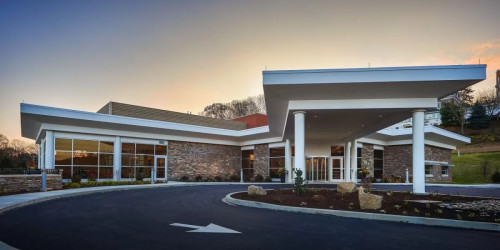




Caron Pennsylvania
Verified Center
This provider's information has been quality-checked by Recovery.com's Research Team for accuracy and completeness, including center verification through appropriate third-party organizations.
Treatment Focus
This center treats substance use disorders and co-occurring mental health conditions. Your treatment plan addresses each condition at once with personalized, compassionate care for comprehensive healing.
Primary Level of Care
Offering intensive care with 24/7 monitoring, residential treatment is typically 30 days and can cover multiple levels of care. Length can range from 14 to 90 days typically.
Treatment Focus
This center treats substance use disorders and co-occurring mental health conditions. Your treatment plan addresses each condition at once with personalized, compassionate care for comprehensive healing.
Primary Level of Care
Offering intensive care with 24/7 monitoring, residential treatment is typically 30 days and can cover multiple levels of care. Length can range from 14 to 90 days typically.
Provider's Policy
Caron has negotiated in-network contracts with several insurance providers for both inpatient and outpatient care. We accept insurance for many residential programs in Pennsylvania, and other locations, to make treatment for substance use disorder accessible to the growing number of people who need it and help them achieve recovery for life.
Caron Pennsylvania
Caron Pennsylvania
About Caron Pennsylvania
Routinely recognized by Newsweek as one of America’s best addiction treatment centers, Caron Pennsylvania provides advanced addiction and behavioral health treatment to patients 16 and older. They offer specialized programs for older adults with complex health conditions, patients who struggle with chronic pain, members of the LGBTQIA+ community, business executives, and professionals in the healthcare, aviation, and legal fields.
Restore Brain Health for Long-Term Recovery
Caron’s approach incorporates advanced neurorestorative therapies to restore brain health, offering patients a clear path that addresses the biological, psychological, and social aspects of addiction. Their treatment programs blend the latest evidence-based medical and psychological practices with proven addiction treatment methods like cognitive behavioral therapy (CBT), dialectical behavior therapy (DBT), 12-Step integration, and motivational interviewing. In addition, each patient’s treatment plan incorporates exercise and fitness, nutrition, and education to promote good health.
Recover in Elevated Clinical Comfort
Caron Pennsylvania delivers a hotel-like experience within a state-of-the-art medical center designed for comfort, privacy, and clinical excellence. Clients stay in gender-specific living quarters in private or shared, well-appointed suites. The campus features a fully equipped gym, indoor lounges, patio and gardens, plus specialized spaces such as a medical suite, physical therapy room, and neurofeedback room.
Stay Supported After Residential Treatment
Transitional care is available through Caron’s day treatment program (PHP)—with optional sober housing—to help increase readiness for life in recovery. Each patient receives a personalized continuing care plan that can include alumni support activities, individual coaching and accountability, virtual support groups, case management, and family support. They also offer multi-day Breakthrough workshops to help patients practice the change they hope to achieve in small, intimate groups.

Highlights from the Center
Highlights
These highlights are provided by and paid for by the center.
Perfect for Professionals
Private Rooms Available
Gender Separate Housing
Executive Treatment
Center Overview
Treatment Focus
This center treats substance use disorders and co-occurring mental health conditions. Your treatment plan addresses each condition at once with personalized, compassionate care for comprehensive healing.
CARF Accredited
CARF stands for the Commission on Accreditation of Rehabilitation Facilities. It's an independent, non-profit organization that provides accreditation services for a variety of healthcare services. To be accredited means that the program meets their standards for quality, effectiveness, and person-centered care.

Caron Pennsylvania
Insurance Accepted




More Caron Centers To Consider
Recovery.com Verified Listing
Recovery.com verified that the name, location, contact information and license to operate for this treatment provider are valid and up-to-date.

Licensed by Pennsylvania
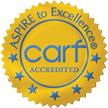
CARF Accredited
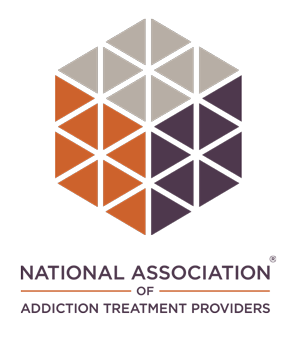
NAATP Member
Recovery.com is an independent, third-party mental health resource. Verification does not imply endorsement and does not guarantee the quality of treatment services.
Meet Your Care Team

Dr. Adam D. Scioli
Chief Medical Officer and Program Director, Caron/Tower Addiction Medicine Fellowship
D.O., DFAPA, FASAM, FAOAAM

Dr. Ming R. Wang
Medical Director, Caron Pennsylvania
MD, FASAM
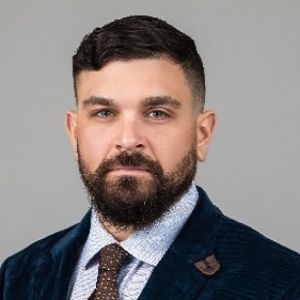
Dr. Steven Klein
Addiction Medicine Physician
MD, PhD, FAAP

Kate Appleman
Executive Vice President
MA, MBA, LPC, CAADC, CCS

Erin Goodhart
Executive Director of Clinical Services, Pennsylvania Campus
MA, LPC, CAADC, CMAT, CSAT, ACRPS, CCS, CPT Provider, EMDR-C, RACS

Dr. Maggie Tipton
Senior Director of Psychological Services
Psy. D

Dr. Devon Dautrich
Supervisor of Psychological Testing Services and Aviation Professionals
Ph.D.

Dr. Heather Hafer
Clinical Supervisor, Young Adult Program, Pennsylvania Campus
Ph.D., MS, CAADC, CCS, CCPG

Diana DiGirolamo
Clinical Supervisor Older Adult Program, Pennsylvania Campus
LCSW, CAADC

Dorothy Diamond
Clinical Supervisor of Relapse Men’s Program and Partial Hospitalization Program (PHP), Pennsylvania Campus
LPC, CAADC
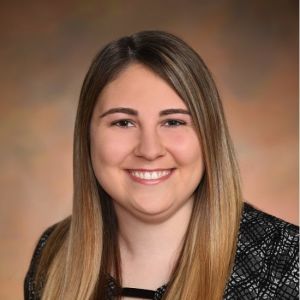
Dr. Bethany Franklin
Lead Behavioral Health Therapist
DSW, LCSW, M.Ed., CAADC, RACS

Melinda Castro
Family Therapist
MA, LPC, CAADC
Your Care Options
Specializations
Alcohol
Using alcohol as a coping mechanism, or drinking excessively throughout the week, signals an alcohol use disorder.
Detox
Detox fully and safely removes toxic substances from the body, allowing the next steps in treatment to begin with a clean slate.
Co-Occurring Disorders
A person with multiple mental health diagnoses, such as addiction and depression, has co-occurring disorders also called dual diagnosis.
Executives
Executive treatment programs typically directly support the needs of people who manage businesses and may provide flexible schedules and office space to allow work during treatment.
Young Adults
Emerging adults ages 18-25 receive treatment catered to the unique challenges of early adulthood, like college, risky behaviors, and vocational struggles.
LGBTQ+
Addiction and mental illnesses in the LGBTQ+ community must be treated with an affirming, safe, and relevant approach, which many centers provide.
Outpatient
During outpatient rehab, patients attend a structured treatment program while continuing to live at home.
Residential
In a residential rehab program, patients live onsite, with access to daily treatment and 24-hour care. An average stay is 30-90 days.
Who We Treat
Older Adults
Addiction and mental health treatment caters to adults 55+ and the age-specific challenges that can come with recovery, wellness, and overall happiness.
Executives
Executive treatment programs typically directly support the needs of people who manage businesses and may provide flexible schedules and office space to allow work during treatment.
Young Adults
Emerging adults ages 18-25 receive treatment catered to the unique challenges of early adulthood, like college, risky behaviors, and vocational struggles.
LGBTQ+
Addiction and mental illnesses in the LGBTQ+ community must be treated with an affirming, safe, and relevant approach, which many centers provide.
Men and Women
Men and women attend treatment for addiction in a co-ed setting, going to therapy groups together to share experiences, struggles, and successes.
Midlife Adults
For adults ages 40+, treatment shifts to focus on the unique challenges, blocks, and risk factors of their age group, and unites peers in a similar community.
Professionals
Busy, high-ranking professionals get the personalized treatment they need with greater accommodations for work, privacy, and outside communication.
Treatment Services
Day Treatment
In a PHP, patients live at home but follow an intensive schedule of treatment. Most programs require you to be on-site for about 40 hours per week.
Detox
Detox fully and safely removes toxic substances from the body, allowing the next steps in treatment to begin with a clean slate.
Outpatient
During outpatient rehab, patients attend a structured treatment program while continuing to live at home.
Residential
In a residential rehab program, patients live onsite, with access to daily treatment and 24-hour care. An average stay is 30-90 days.
Approaches
Evidence-Based
A combination of scientifically rooted therapies and treatments make up evidence-based care, defined by their measured and proven results.
Twelve Step
Incorporating spirituality, community, and responsibility, 12-Step philosophies prioritize the guidance of a Higher Power and a continuation of 12-Step practices.
Gender-Specific
Separate treatment for men or women can create strong peer connections and remove barriers related to trauma, shame, and gender-specific nuances.
Therapies
1-on-1 Counseling
Patient and therapist meet 1-on-1 to work through difficult emotions and behavioral challenges in a personal, private setting.
Meditation & Mindfulness
A practiced state of mind that brings patients to the present. It allows them to become fully aware of themselves, their feelings, and the present moment.
Trauma-Specific Therapy
This form of talk therapy addresses any childhood trauma at the root of a patient's current diagnosis.
Eye Movement Therapy (EMDR)
Lateral, guided eye movements help reduce the emotional reactions of retelling and reprocessing trauma, allowing intense feelings to dissipate.
Family Therapy
Family therapy addresses group dynamics within a family system, with a focus on improving communication and interrupting unhealthy relationship patterns.
Medication-Assisted Treatment
Combined with behavioral therapy, prescribed medications can enhance treatment by relieving withdrawal symptoms and focus patients on their recovery.
Relapse Prevention Counseling
Relapse prevention counselors teach patients to recognize the signs of relapse and reduce their risk.
Conditions We Treat
Grief and Loss
Grief is a natural reaction to loss, but severe grief can interfere with your ability to function. You can get treatment for this condition.
Personality Disorders
Personality disorders destabilize the way a person thinks, feels, and behaves. If untreated, they can undermine relationships and lead to severe distress.
ADHD, ADD
ADHD is a common mental health condition caused by dopamine imbalance. Common symptoms include inattention, hyperactivitiy, and impulsivity.
Anger
Although anger itself isn't a disorder, it can get out of hand. If this feeling interferes with your relationships and daily functioning, treatment can help.
Anxiety
Anxiety is a common mental health condition that can include excessive worry, panic attacks, physical tension, and increased blood pressure.
Bipolar
This mental health condition is characterized by extreme mood swings between depression, mania, and remission.
Chronic Pain Management
Long-term physical pain can have an affect on mental health. Without support, it can also impact your daily life and even lead to addiction.
Codependency
Codependency is a pattern of emotional dependence and controlling behavior. It's most common among people with addicted loved ones.
Depression
Symptoms of depression may include fatigue, a sense of numbness, and loss of interest in activities. This condition can range from mild to severe.
Substances We Treat
Alcohol
Using alcohol as a coping mechanism, or drinking excessively throughout the week, signals an alcohol use disorder.
Benzodiazepines
Benzodiazepines are prescribed to treat anxiety and sleep issues. They are highly habit forming, and their abuse can cause mood changes and poor judgement.
Chronic Relapse
Consistent relapse occurs repeatedly, after partial recovery from addiction. This condition requires long-term treatment.
Co-Occurring Disorders
A person with multiple mental health diagnoses, such as addiction and depression, has co-occurring disorders also called dual diagnosis.
Cocaine
Cocaine is a stimulant with euphoric effects. Agitation, muscle ticks, psychosis, and heart issues are common symptoms of cocaine abuse.
Drug Addiction
Drug addiction is the excessive and repetitive use of substances, despite harmful consequences to a person's life, health, and relationships.
Heroin
Heroin is a highly addictive and illegal opioid. It can cause insomnia, collapsed veins, heart issues, and additional mental health issues.
Methamphetamine
Methamphetamine, or meth, increases energy, agitation, and paranoia. Long-term use can result in severe physical and mental health issues.
Languages
Aftercare
Care Designed for Your Needs
Personal Amenities
Amenities
Special Considerations
Executive Program
Addiction and mental health treatment for executives typically involves high discretion, greater technology access, and more private, 1-on-1 care.
Flexible technology policies
Centers with flexible technology policies allow professionals to stay in touch with work and give patients a greater sense of connection and normalcy.
Gender-specific groups
Patients in gender-specific groups gain the opportunity to discuss challenges unique to their gender in a comfortable, safe setting conducive to healing.
LGBTQ group
Group therapy unites LGBTQ+ patients in a safe and culturally competent setting, encouraging peer support under the expert leadership of a therapist.
Young Adults Program
Programs for young adults bring teens 18+ together to discuss age-specific challenges, vocational and educational progress, and successes in treatment.
Activities
Yoga
Yoga is both a physical and spiritual practice. It includes a flow of movement, breathing techniques, and meditation.
Off-Site Activities

Learn More About the Center
Recovery for the LGBTQIA+ Community
Explore inclusive addiction care designed specifically for LGBTQIA+ individuals seeking affirming, whole-person healing.
Recovery for Healthcare Professionals
Discover specialized support tailored for healthcare professionals balancing work stress and recovery challenges.
Recovery for Aviation Professionals
Pursue recovery treatment that helps pilots and crew safely sustain careers.
Recovery for Chronic Pain
Learn how integrated chronic pain and addiction treatment can transform long-term wellbeing.
What people are saying
Treatment
3.9
Accommodations
4.2
Food & Nutrition
4.2
Value
4.3
Kylie
Reviewed 03/17/24
Review from Rehabs.com
CB
Reviewed 06/25/18
Review from Rehabs.com
Michele
Reviewed 05/01/20
Review from Rehabs.com
John N
Reviewed 05/01/20
Review from Rehabs.com
wm
Reviewed 05/11/19
Review from Rehabs.com





